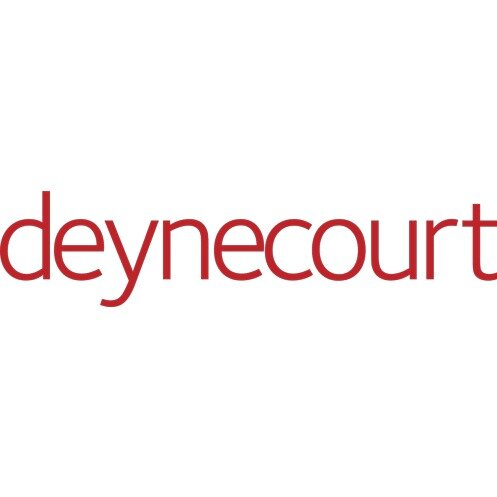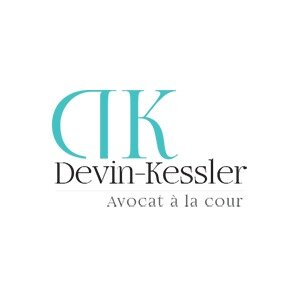Best Mining Law Lawyers in Luxembourg
Share your needs with us, get contacted by law firms.
Free. Takes 2 min.
List of the best lawyers in Luxembourg, Luxembourg
About Mining Law in Luxembourg, Luxembourg
Mining law in Luxembourg, Luxembourg governs the exploration, extraction, and exploitation of mineral resources on the country's land. The legal landscape is shaped by both national legislation and European Union directives, ensuring that mining operations comply with environmental, safety, and land-use regulations. While Luxembourg is widely known for its finance industry, its mining sector has historical significance and current relevance regarding building materials, minerals, and potential strategic resources. Mining activities are strictly regulated to prevent environmental damage and to ensure sustainable development. Understanding the legal framework is essential for anyone interested in engaging in mining or related activities in Luxembourg.
Why You May Need a Lawyer
Navigating mining law in Luxembourg can be complex due to detailed regulations, permit requirements, and environmental considerations. You may need a lawyer if you are:
- Seeking a mining or exploration license
- Negotiating with landowners or local authorities
- Dealing with compliance, safety, or environmental standards
- Involved in mergers, acquisitions, or joint ventures related to mining
- Facing disputes over land use, royalties, or mineral rights
- Concerned about liability for environmental or workplace incidents
- Needing guidance on import, export, or trade of minerals
A qualified mining law attorney can help protect your interests and guide you through the regulatory processes, ensuring your operations are legally compliant and risk is minimized.
Local Laws Overview
Mining activities in Luxembourg are governed by the Law of 20 April 1979 and subsequent regulations concerning mineral extraction and environmental protection. Key aspects of local laws include:
- A licensing regime for exploration and exploitation of mineral resources, which requires government approval
- Environmental impact assessments for certain types of mining activity
- Strict requirements for restoration and rehabilitation of mining sites after operations cease
- Obligations to protect public health, worker safety, and biodiversity
- Regulation of the use of explosives and hazardous substances during extraction
- Transparent reporting and monitoring requirements for mining operations
- Special considerations for protected areas or heritage sites
EU regulations and directives on mining, minerals trade, and environmental protection also apply, making the regulatory framework multifaceted and evolving.
Frequently Asked Questions
What minerals are currently mined in Luxembourg?
Luxembourg has a historical legacy of iron ore mining, though extractive activities are now mainly limited to building materials like sand, gravel, and stone. Exploration into other minerals or resources must follow strict legal procedures.
Who owns mineral rights in Luxembourg?
In Luxembourg, the state owns mineral resources, regardless of who owns the surface land. Any entity wishing to extract minerals must obtain the appropriate license from the government.
How do I apply for a mining or exploration license?
You must submit a detailed application to the Ministry of the Economy, including technical, financial, and environmental documentation. The process involves public consultation and environmental review before any permit is issued.
Are there specific environmental regulations for mining?
Yes, mining operators must comply with environmental laws requiring impact assessments, site restoration, ongoing monitoring, and adoption of pollution-prevention measures.
What happens if mining causes environmental damage?
Operators are legally responsible for remedying any environmental damage caused by their activities. Severe breaches can lead to fines, remediation orders, and criminal liability.
Do I need to consult local communities before starting mining activities?
Yes, community consultation is part of the approvals process. Authorities ensure that stakeholders have the opportunity to express concerns or objections.
Is it possible to buy or sell mining rights?
Mining licenses cannot be freely traded or sold. Transfers or assignments require governmental approval and due diligence.
What are the main taxes or royalties applied to mining activities?
Mining activities may be subject to royalties, annual fees, and corporate tax. The specific structure depends on the type and scale of the operation.
Can foreign companies engage in mining in Luxembourg?
Foreign companies can apply for mining licenses, but must comply with the same legal and regulatory requirements as domestic operators.
What is the duration of a typical mining license?
The validity of mining licenses can range from a few years to several decades, depending on the type of resource, scale of extraction, and compliance with permit conditions. Renewal is possible but subject to reassessment.
Additional Resources
If you are seeking further information or assistance regarding mining law in Luxembourg, consider these resources:
- Ministry of the Economy - Department of Mines
- Luxembourg Environment Agency (Administration de l'environnement)
- Chamber of Commerce Luxembourg
- European Union directives on mining and environmental protection
- Local legal associations specializing in natural resources and environmental law
Next Steps
If you believe you require legal assistance concerning mining law in Luxembourg, begin by gathering as much relevant documentation as possible, including technical project details, maps, and correspondence with authorities. Next, consult with a lawyer who specializes in mining or natural resources law to assess your situation. Many legal professionals offer initial consultations to clarify your needs and outline possible courses of action. Acting early helps ensure you comply with regulatory requirements and reduces the likelihood of legal or operational setbacks.
Lawzana helps you find the best lawyers and law firms in Luxembourg through a curated and pre-screened list of qualified legal professionals. Our platform offers rankings and detailed profiles of attorneys and law firms, allowing you to compare based on practice areas, including Mining Law, experience, and client feedback.
Each profile includes a description of the firm's areas of practice, client reviews, team members and partners, year of establishment, spoken languages, office locations, contact information, social media presence, and any published articles or resources. Most firms on our platform speak English and are experienced in both local and international legal matters.
Get a quote from top-rated law firms in Luxembourg, Luxembourg — quickly, securely, and without unnecessary hassle.
Disclaimer:
The information provided on this page is for general informational purposes only and does not constitute legal advice. While we strive to ensure the accuracy and relevance of the content, legal information may change over time, and interpretations of the law can vary. You should always consult with a qualified legal professional for advice specific to your situation.
We disclaim all liability for actions taken or not taken based on the content of this page. If you believe any information is incorrect or outdated, please contact us, and we will review and update it where appropriate.
















